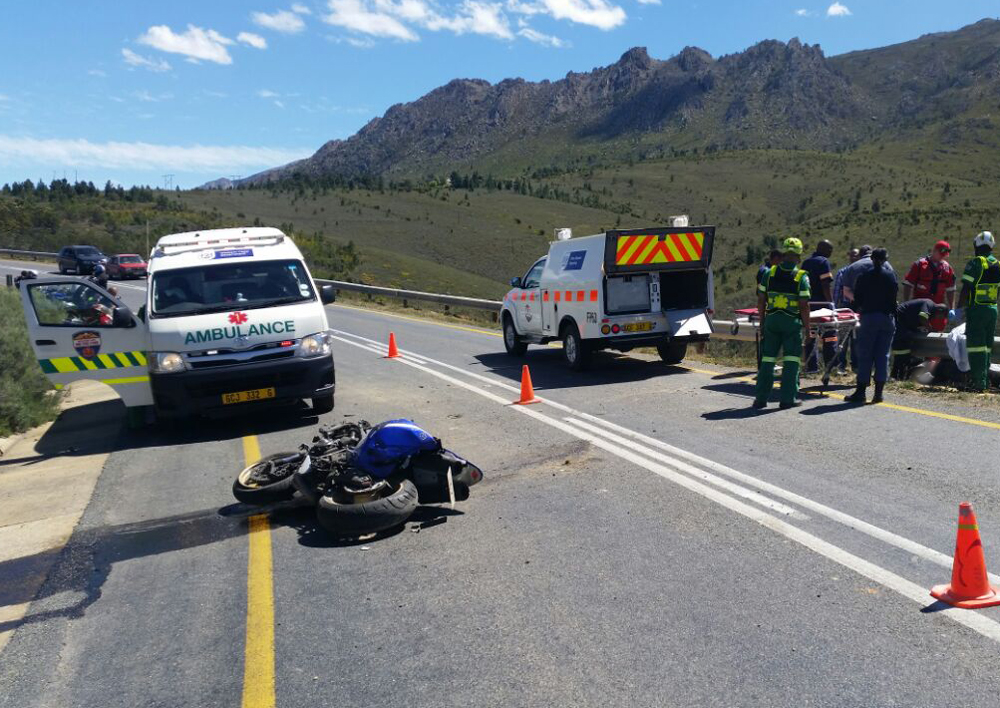South African roads are among the most dangerous in the world, with thousands of accidents occurring annually. Motorcycle riders are particularly vulnerable to serious injury because there’s no protective barrier between them and the road, and because they can be hard for other motorists to see.
This is according to Kirstie Haslam, partner at DSC Attorneys, a firm that specialises in road accident claims, who says that a high percentage of motorcycle accidents are the fault of another driver, making it especially important for motorcycle riders to know their rights in the event of an accident.
With the high risk involved in riding a motorcycle, accident victims often sustain severe injury, resulting in a loss of income and hefty medical expenses.
Haslam says that if you’re injured in a motorcycle accident that wasn’t the result of negligence on your part, you can claim compensation from the Road Accident Fund (RAF). However, for a claim to succeed, she says that it has to be properly substantiated.
If you’re involved in a motorcycle accident, Haslam says that it’s important that you take the following steps:
Record as much information about the accident as possible
Information you record about the accident will be useful as evidence to support a claim. Aim to record details of all vehicles and vehicle owners involved in the accident and take the names and contact numbers for any witnesses. Also request the name and details of any police or traffic officer attending the scene.
Take photographs
If possible and once you’re in a position to do so, take photographs to document the accident. Photograph your injuries, the damage to your bike, the scene of the collision and anything else that can be used as evidence to support your claim.
Seek medical attention
You should seek medical treatment as soon after the accident as possible. If you’re transported to a hospital from the scene of the accident, you should remain in the hospital for as long as the doctor tells you to. Whether or not your injury initially appears serious, seeking medical advice will corroborate a causal link between the accident and the injury.
Get a copy of the police report
In addition to consulting a doctor directly after the accident, you should get a police report. The report should include details of those involved in the accident, the vehicles involved and their insurance information. The police report may also contain witness statements and observations made by the attending police officer.
Complete your treatment
After a motorbike accident, you should continue treatment and recuperation for as long as a doctor recommends, including staying off work and avoiding certain tasks. You should follow all of your doctor’s instructions.
Although the accident that gave rise to your injuries may not have been your fault, in our law an accident victim has a duty to mitigate their damages – that is, to do their best to limit their losses. This would include following medical advice and seeking appropriate treatment.
Contact an attorney
Motorcycle accident claims can be complicated, requiring in-depth investigation of the nature and potential long-term effects of injuries, as well as substantiation of exactly what occurred during an accident and who was at fault.
Accordingly, motorcycle accident victims planning to claim from the Road Accident Fund should contact an attorney who’s suitably experienced in personal injury claims as soon as possible.
Precautionary Measures
Haslam says that motorcyclists should also consider taking certain precautionary measures such as wearing appropriate and visible protective gear at all times. “Go-pro/helmet cameras are a welcome and increasingly used resource by motorcyclists,” says Haslam. “So often the dispute around motorcycle-involved collisions relates to (the motorcyclist’s) visibility and these camera recordings can be vital to resolving such disputes and establishing who was at fault. The footage can even be produced in a criminal or civil trial as evidence to be relied upon in establishing liability.”
www.dsclaw.co.za
Motorcycle Safety https://t.co/zP5h6cJlUN #ArriveAlive pic.twitter.com/666rLfiylE
— Arrive Alive (@_ArriveAlive) February 15, 2017
